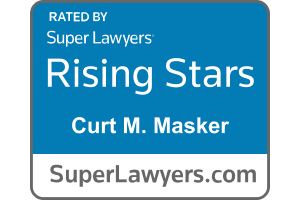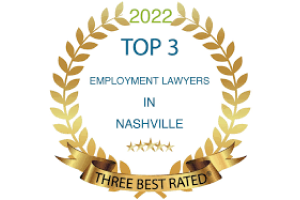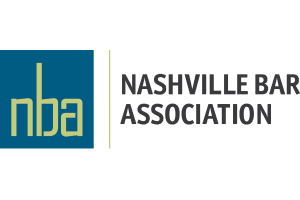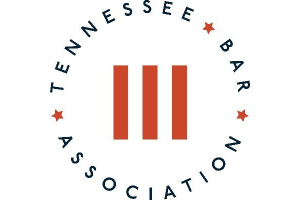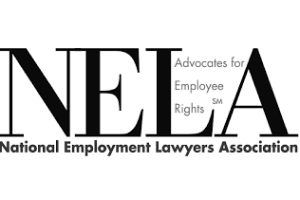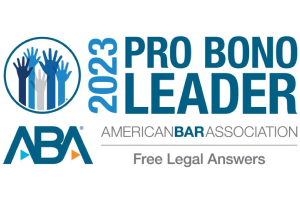for Workers
Discussing Wages at Work
Our Nashville labor and employment lawyers represent individuals who have been wrongfully terminated for discussing wages at work.
Under federal law, most private-sector employees have the right to discuss their conditions of employment, including wages and benefits, without fear of retaliation from their employer.
The truth is that some employers try to shortchange workers by prohibiting or discouraging discussions about wages among coworkers. In other words, instead of paying everyone fairly, they attempt to keep the lid on unfair pay disparities by threatening workers with discipline simply for asking about pay.
Federal Labor Law
The National Labor Relations Act (NLRA) protects the rights of employees (union and non-union) to engage in “protected concerted activity,” which is broadly interpreted to include when employees “take action for their mutual aid or protection regarding terms and conditions of employment.”
In practical terms, this means workers have the right to:
- Discuss wages, benefits, and working conditions
- Circulate a petition for better hours and pay
- Discuss ongoing workplace investigation (absent a legitimate business reason)
- + Other labor rights
Employers that attempt to prohibit these activities, orally or in a written policy, are likely violating your legal rights under the NLRA. For example, some employers include “salaries and wages” in the definition of “confidential information” or “trade secrets” in their employee handbooks.
The NLRA and Social Media
The NLRA’s worker protections extend to social media as well. For example, a worker was terminated for “disloyalty” after posting about her working conditions on Facebook. After filing a complaint with the National Labor Relations Board (NLRB aka “the Board”), an administrative law judge found that the employer violated the NLRA by imposing” “overly broad” employee handbook rules on the terminated employee and her coworkers. This practice was held to violate the NLRA because it could have a chilling effect on workers talking about their working conditions. Tinley Park Hotel and Convention Center, LLC and Audelia Santiago.
Our team of Nashville-based workplace attorneys represent Tennessee workers who have been wrongfully terminated after discussing their pay at work.
Who Is Covered by the NLRA?
The NLRA does not apply to all workers. Specifically, the law does not apply to:
- Government employees
- Agricultural workers
- Independent contractors
- Supervisors (limited exceptions)
Who Is a “Supervisor” Under the NLRA?
Whether or not you are considered a “supervisor” under the NLRA is an essential question because the Act only permits non-supervisory employees to organize and engage in protected activities free from employer interference. 29 U.S.C. §§ 153(3) and 157. The NLRA defines “supervisor” as:
Any individual having authority, in the interest of the employer, to hire, transfer, suspend, lay off, recall, promote, discharge, assign, reward, or discipline other employees, or responsibly to direct them, or to adjust their grievances, or effectively to recommend such action, if in connection with the foregoing the exercise of such authority is not of a merely routine or clerical nature, but requires the use of independent judgment. [29 U.S.C. § 152(11).]
In practical terms, this means that an employee is considered a “supervisor” for purposes of the Act if that employee undertakes one of the 12 functions in the definition above while using independent judgment in the employer’s interest. Health Care and Retirement Corp. of America v. NLRB, 987 F.2d 1256, 1261 (6th Cir. 1993). The use of independent judgment cannot be routine or clerical, and an employee’s job title does not determine whether the employee is a supervisor. Courts have the final say of who is a “supervisor” under the Act.
Remedies Under the NLRA
The Board has the authority to provide make-whole relief to a charging party. The Board will often order an employer to cease and desist from committing the labor violation and to immediately remedy the violation. The most common remedies are back pay or reinstatement for employees who have been wrongfully terminated. Other remedies may include payment of “interim expenses,” such as for transportation or housing, resulting from the wrongful termination. Lou’s Transp., Inc. v. NLRB, 945 F.3d 1012 (6th Cir. 2019).
The employer may also be forced to post a notice for about 60 days notifying all employees that the employer has been found guilty of committing a labor law violation and reminding employees of their legal rights. In egregious cases, the Board may seek to impose an injunction on an employer to prevent further violations from occurring. Failure to comply with such remedies may lead to the employer being found in contempt.
Do Not Wait – Contact Us Today
The NLRA has very short deadlines of six months or less depending on the specific circumstances. So do not wait to understand your legal rights.
Our law firm of skilled labor and employment lawyers fights for victims of unfair labor practices. If you believe your rights have been violated, contact us for a free online case review.


